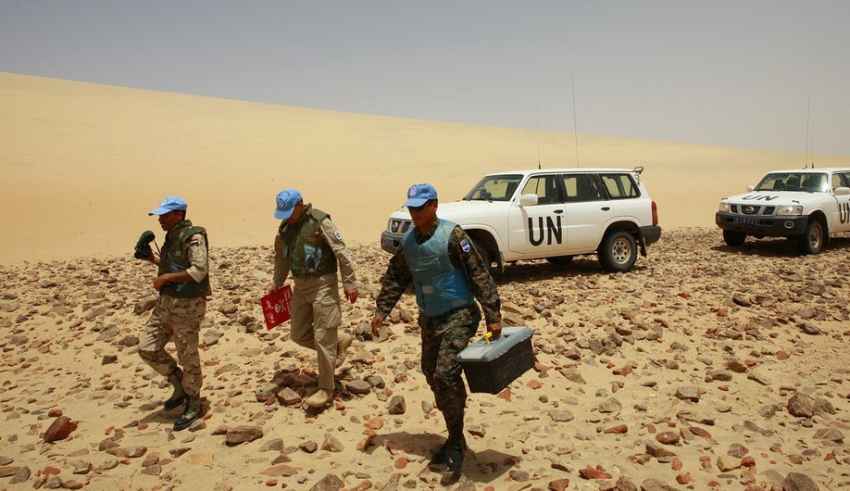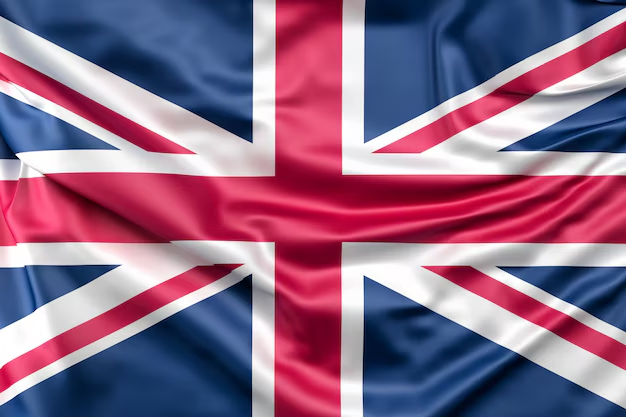
The history of Western Sahara is characterized by occupation. Since the end of the 19th century, its territory has been occupied by Spain, which exploited the large fishing grounds and the phosphate and hydrocarbon finds. During the 1960s, the UN insisted on the country’s decolonization, to which Spain gave in and announced a referendum (UN General Assembly, 1974). However, the convulsive situation in Spain following the end of Franco’s dictatorship and Morocco’s ambition to create the Greater Morocco led Morocco to launch the Green March in 1975 and occupy the territory. Through the Madrid Tripartite Agreement, Spain was forced to hand over Western Sahara to Morocco and Mauritania and to abandon the territory. This agreement contravened international law, which is why the United Nations does not recognize it and continues to consider Western Sahara a Spanish colony, and it is Spain responsibility to decolonize (MINURSO, 2022).
At the same time, the Sahrawi population, unhappy with the situation, revolted and founded the Polisario Front in 1973, an organization whose aim was to end colonialism and whose struggle for independence continues to this day. Following Spain’s withdrawal, the Polisario Front proclaimed the Sahrawi Arab Democratic Republic and launched a war against Morocco and Mauritania. The conflict also involved Algeria- which had ideological ties with the Polisario Front, in addition to its rivalry with Morocco-that supported the newly proclaimed Republic. The conflict lasted more than 15 years, with Mauritania’s withdrawal in 1979, and a ceasefire in 1991, sponsored by the United Nations, which established a peacekeeping mission, MINURSO, still present in the territory (MINRUSO,2022). However, in 2020 the ceasefire broke down and the conflict between Morocco and the Polisario Front has been reactivated.
Return to hostilities
In November 2020, Morocco deployed its army in a demilitarized zone in Guerguerat, in order to dismantle a Saharawi protest, in breach of the ceasefire (Europa Press, 2020a). Likewise, the MINURSO resolution of October 2020 did not mention the referendum on self-determination, as well as the decision, in December of that year, of the US president to recognize Moroccan sovereignty over Western Sahara in exchange for Morocco’s recognition of Israel (Trump, 2020). All these events prompted the Polisario Front to re-declare war and announce that hostilities would not cease until the United Nations set a date for the referendum vote (Mohamed, 2020).
On the one hand, Sahrawi pressure has been increasing, with attacks on border posts and attempts to publicize as much as possible what is happening, such as the assassination of the head of the National Guard, to gain international attention and support.. On the other hand, Morocco’s strategy is one of apparent normality, mentioning the conflict as little as possible and not reacting on a large scale. Morocco does not want to enter into open war with the Sahara as it would be difficult to justify in the eyes of the international community.
At the moment, Morocco is in an advantageous position, as it has the support of powers such as France and the United States, and its position as a deterrent to irregular immigration is very important for the European Union. In April 2021, Spain offered health care to Polisario Front leader, Brahim Ghali, which deteriorated diplomatic relations between Spain and Morocco and resulted in Morocco allowing the illegal entry of more than 8,000 migrants into Spanish territory, the most numerous entry into Spain, demonstrating its capacity to influence the decisions (Sanchez, 2021).
However, the Saharawis have also had some victories, such as the EU General Court’s ruling on the cancellation of agreements with Morocco on the grounds that the international community does not recognise Western Sahara as part of Morocco, and therefore cannot negotiate the exploitation of its resources (General Court of the European Union, 2021). Or the recent increase in tension between Morocco and the Polisario’s main supporter, Algeria – where a large number of Sahrawi refugee camps are established and which can be used to increase pressure on Morocco and weaken it – which has decided to close the Maghreb-Europe gas pipeline that passed through Morocco, in the midst of a global price increase of gas (Peregil, 2021).
Conclusion
The end of the conflict does not seem to be near, since at the end of 2021, the United Nations renewed its mandate for MINURSO without any progress (Europa Press, 2021), so the Polisario Front will maintain its strategy of maintaining the conflict in order to make its cause visible and achieve the holding of the referendum. Moreover, holding a referendum would not be the solution, since Morocco has not recognised the right to self-determination for Western Sahara since 2004, but only maximum autonomy, which would not be enough for the Saharawis (Boukhari, 2004)
Increased tensions between Algeria and Morocco would not be conducive to ending the conflict either, as there is the possibility of a proxy war between the two countries in Western Sahara. Algeria provides military equipment to the Polisario Front and the Algerian constitution was amended to allow the army to act in peace operations abroad, which could serve as support for the Saharawis (Europa Press, 2020b)
Sahrawi independence has survived but the situation in Western Sahara is delicate, with much of the population living in large refugee camps in the middle of the desert, dependent on humanitarian aid, and with internal stability increasingly complicated by the emergence of opposition groups within the Polisario Front.
Verónica Rodríguez Fariña
Literature
- Amirah-Fernandez, H. and Werenfles, I. (07/04/2021) “Western Sahara: can a Trump tweet lead to unlocking the stalemate?”. Real Instituto Elcano. Available at: http://www.realinstitutoelcano.org/wps/portal/rielcano_en/contenido?WCM_GLOBAL_CONTEXT=/elcano/elcano_in/zonas_in/ari43-2021-amirahfernandez-werenfels-western-sahara-can-a-trump-tweet-lead-to-unlocking-the-stalemate
- Boukhari, A. (19/04/2004) “Las dimensiones internacionales del conflicto del Sahara occidental y sus repercusiones para una alternativa marroquí”. Real Instituo Elcano. Available at: http://www.realinstitutoelcano.org/wps/portal/rielcano_es/contenido?WCM_GLOBAL_CONTEXT=/elcano/elcano_es/zonas_es/mediterraneo+y+mundo+arabe/dt16-2004
- EuropaPress (29/10/2021). “El Consejo de Seguridad de la ONU prorroga el mandato de la MINURSO un año más”. Available at: https://www.europapress.es/internacional/noticia-consejo-seguridad-onu-prorroga-mandato-minurso-ano-mas-20211029172650.html
- Europa Press (13/11/2020). “Marruecos despliega militares en la zona de Guerguerat y el Polisario a por declarada la guerra”. Available at: https://www.europapress.es/internacional/noticia-marruecos-despliega-militares-zona-guerguerat-provocaciones-polisario-20201113100539.html
- Europa Press (13/11/2020). “El Constitucional de Argelia ratifica la victoria del ‘sí’ en el referéndum sobre las enmiendas a la Carta Magna”. Available at: https://www.europapress.es/internacional/noticia-constitucional-argelia-ratifica-victoria-si-referendum-enmiendas-carta-magna-20201113135315.html
- General Court of the European Union (29/09/2021) “General Court annuls the Council decisions concerning, first, the agreement between the European Union and Morocco amending the tariff preferences granted by the European Union to products of Moroccan origin and, second, the Sustainable Fisheries Partnership Agreement” Available at: https://curia.europa.eu/jcms/upload/docs/application/pdf/2021-09/cp210166en.pdf
- MINRUSO (2022) “About the United Nations Missions for the Referendum in Western Sahara”. Available at: https://minurso.unmissions.org/background
- Mohamed, S. (16/11/2020). “El SG del ministerio de Seguridad y Documentación reitera que no habrá cese del fuego en el Sáhara Occidental” ECSAHARAUI. Available at: https://www.ecsaharaui.com/2020/11/estas-son-las-condiciones-para-el-cese.html
- Peregil, F. (31/10/2021) “Argelia corta el mayor de sus gasoductos con España por la crisis con Marruecos”. El País. Available at: https://elpais.com/economia/2021-10-31/argelia-cierra-el-gasoducto-que-transportaba-gas-a-espana-a-traves-de-marruecos.html
- Sanchez, S. (27/05/2021) “El entramado geopolítico detrás de la crisis migratoria en la frontera entre España y Marruecos”. Agenica Anadolu. Avaialble at: https://www.aa.com.tr/es/an%C3%A1lisis/el-entramado-geopol%C3%ADtico-detr%C3%A1s-de-la-crisis-migratoria-en-la-frontera-entre-espa%C3%B1a-y-marruecos/2256690
- Trump, D. (10/12/2020). “Proclamation on Recognizing the sovereignty of the Kingdom of Morocco over the Western Sahara” The White House. Available at: https://trumpwhitehouse.archives.gov/presidential-actions/proclamation-recognizing-sovereignty-kingdom-morocco-western-sahara/
- United Nations, Security Council (03/11/2020) “Resoluución 2548”. Available at: https://www.usc.gal/export9/sites/webinstitucional/gl/institutos/ceso/descargas/S_2020_1075_ES.pdf
- United Nations General Assembly (21/08/1974) “Aplicación de la declaración sobre la concesión de la independencia a los países y pueblos coloniales”. Available at: https://www.usc.es/export9/sites/webinstitucional/gl/institutos/ceso/descargas/A_9714_es.pdf
By The European Institute for International Law and International Relations.














